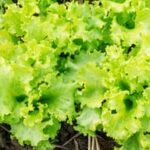Ants are a common sight in gardens, but do ants destroy vegetable gardens? The answer to this question is crucial for gardeners looking to protect their crops. Ant infestations can lead to significant damage to vegetable plants, affecting their growth and overall health.
In this article, we will explore the impact of ants on vegetable gardens, offering insights into the different ant species that can cause harm and providing tips for identifying and addressing ant damage. From natural remedies to chemical control options, we will cover various strategies for deterring ants and maintaining an ant-free vegetable garden.
Ants are not only a nuisance in the garden, but they can also pose a threat to the vitality of vegetable plants. It is important for gardeners to be able to identify the signs of ant damage in order to take proactive measures to address the issue. By understanding the behavior and habits of different ant species commonly found in vegetable gardens, individuals can better prepare themselves for protecting their plants from potential harm.
In the following sections, we will delve deeper into the types of ant species that commonly infest vegetable gardens, examine their impact on plant health, and explore effective methods for deterring and controlling ant infestations. Whether you are an experienced gardener or just starting out with your own vegetable garden, understanding how ants can impact your crops is essential for maintaining a thriving garden.
Identifying Ant Species in Vegetable Gardens
Ants are a common sight in many vegetable gardens, and while some species may not cause significant harm, others can be destructive to the plants. It is important for gardeners to be able to identify the different ant species that may be present in their gardens in order to understand their behavior and potential impact on vegetable plants.
There are several types of ants that can be found in vegetable gardens, including fire ants, carpenter ants, and Argentine ants, among others. Each species has its own unique characteristics and behavior patterns, which can influence the way they interact with vegetable plants. For example, fire ants are known for their aggressive nature and painful stings, while carpenter ants are more likely to nest within wooden structures such as raised garden beds or compost bins.
By understanding the specific ant species present in a vegetable garden, gardeners can better assess the potential risk they pose to their plants and take appropriate measures to manage infestations. Observing their behavior and habits can also help in creating effective strategies for deterring them from causing damage to the garden environment.
| Ant Species | Characteristics |
|---|---|
| Fire Ants | Aggressive nature; painful stings |
| Carpenter Ants | Nesting in wooden structures; potential structural damage |
| Argentine Ants | Large colonies; ability to displace other ant species |
Signs of Ant Damage in Vegetable Gardens
Ants can cause significant damage to vegetable gardens, affecting the health and growth of various plants. One clear sign of ant damage in a vegetable garden is the presence of aphids on the plants. Aphids are small insects that feed on plant sap and are often tended and protected by ants. If you notice an increase in aphid populations on your vegetable plants, it could be an indicator of ant activity in the garden.
Another visible indication of ant damage is distorted or stunted plant growth. Ants can disrupt the normal growth patterns of vegetables by disturbing the root systems and soil around the plants. This can lead to wilting, yellowing leaves, or overall poor development in affected crops. Additionally, certain types of ants like fire ants can create mounds near the base of vegetable plants, causing soil erosion and potentially damaging the roots.
In some cases, ant damage may also result in reduced crop yield or quality. For example, if ants are feeding on ripe fruits or seeds in the garden, it can lead to loss of produce or compromised harvests. It is important for gardeners to be vigilant and observant when it comes to monitoring their vegetable gardens for signs of potential ant damage, as early detection can help prevent further harm to the crops.
| Signs of Ant Damage | Impact |
|---|---|
| Aphids on plants | Increased pest populations |
| Distorted or stunted growth | Poor development and wilting |
| Mounds near plant bases | Potential root damage |
Understanding the Impact of Ants on Vegetable Plants
Ants can have a significant impact on the growth and health of vegetable plants in a garden. Understanding how these tiny insects can negatively affect the development of vegetables is crucial in implementing effective pest management strategies.
Effects on Growth and Health
One of the ways in which ants can impact vegetable plants is through their farming of aphids. Ants protect aphids from predators and, in return, feed on the honeydew they produce. This symbiotic relationship between ants and aphids can lead to stunted growth and weakened plants, as aphids deplete the vital nutrients from the vegetables.
Moreover, ants are known to disturb the soil around vegetable roots while building their nests. This disruption can hinder the water and nutrient uptake by the plants, ultimately affecting their overall health and productivity.
Specific Damage to Different Vegetables
Different types of vegetables can be affected by ant infestations in varying ways. For instance, root vegetables such as carrots and radishes may suffer from tunneling damage caused by ants, reducing crop yield and quality. On the other hand, fruits such as strawberries are susceptible to damage from aphids farmed by ants, leading to deformation or decreased sweetness in the berries.
Understanding how ants specifically impact different types of vegetables allows gardeners to tailor their pest control methods to protect their specific crops effectively.
Natural Remedies to Deter Ants in Vegetable Gardens
Organic Methods
One of the most effective ways to deter ants from infesting vegetable gardens is by using organic and environmentally friendly methods. Many natural substances can be used to repel ants without causing harm to the environment or the vegetables themselves. For example, spreading diatomaceous earth around the garden can create a barrier that ants are reluctant to cross. Additionally, planting aromatic herbs like mint, basil, or tansy can help discourage ants from entering the garden.
DIY Solutions
For those looking for do-it-yourself solutions to combat ant infestations in their vegetable gardens, there are several options available. Creating ant traps using a mixture of borax and sugar is an effective way to lure and eliminate ants without resorting to harmful chemicals. Similarly, spraying a mixture of water and essential oils such as peppermint, tea tree, or citrus can help keep ants at bay while also providing a pleasant fragrance in the garden.
Natural Products
In addition to homemade remedies, there are various natural products on the market that can be used to repel ants from vegetable gardens. Substances such as neem oil, vinegar, or even coffee grounds can act as natural deterrents for ants while being safe for use around edible plants.
These products offer a non-toxic alternative to chemical pesticides and can be easily incorporated into a regular gardening routine for ongoing ant control. By utilizing these natural remedies, gardeners can effectively manage ant infestations in their vegetable gardens while maintaining a healthy and eco-friendly environment.
Chemical Control Options for Ants in Vegetable Gardens
When faced with a stubborn ant infestation in your vegetable garden, chemical control options can be an effective way to manage the problem. While natural remedies have their benefits, sometimes chemical treatments may be necessary to eliminate ants and protect your vegetable plants.
Here are some chemical control options for ants in vegetable gardens:
– **Insecticidal Sprays:** There are various insecticidal sprays available that are specifically formulated to target ants. These can be applied directly to the affected areas of the garden to kill off the ant population.
– **Ant Baits: ** Ant baits containing pesticides can also be strategically placed around the garden to attract and eliminate ants. The bait is taken back to the ant colony, ultimately reducing their numbers.
– **Granular Insecticides:** Granular insecticides can be spread around the perimeter of the garden or directly on ant mounds. As ants come into contact with these granules, they are affected by the pesticide.
It’s important to note that when using chemical control options in a vegetable garden, care must be taken to minimize any potential harm to beneficial insects, pets, and humans. Always follow the instructions and safety precautions provided by the product manufacturer.
Utilizing chemical control options should be considered as a last resort after trying natural remedies and preventative measures. It’s essential to weigh the potential risks and benefits of using pesticides in your vegetable garden and consult with a professional if needed.
Prevention and Maintenance Tips for Ant-Free Vegetable Gardens
Creating an ant-free environment in your vegetable garden is essential for promoting the health and productivity of your plants. By implementing the following prevention and maintenance tips, you can effectively deter ants from infesting your garden and causing damage to your precious vegetables:
1. Remove Potential Nesting Sites: Keep the area around your vegetable garden free of debris, mulch, and other potential nesting sites for ants. This will help discourage them from building colonies near your plants.
2. Seal Entry Points: Inspect the perimeter of your garden for any cracks or gaps that could serve as entry points for ants. Seal these openings with caulk or another suitable material to prevent ants from gaining access to your vegetable patch.
3. Diatomaceous Earth: Sprinkling food-grade diatomaceous earth around the perimeter of your garden can act as a natural barrier to keep ants at bay. This substance is non-toxic to humans and pets but is effective in repelling insects, including ants.
4. Companion Planting: Integrate companion plants in your vegetable garden that naturally repel ants, such as mint, tansy, or garlic. These aromatic plants can help deter ants from invading your garden space.
5. Regular Maintenance: Stay on top of regular maintenance tasks in your garden, such as weeding and watering, to keep the environment less hospitable to ant colonies. By maintaining a clean and tidy garden space, you can discourage ant infestations.
6. Natural Predators: Encourage natural predators of ants, such as birds and beneficial insects like ladybugs and lacewings, to frequent your garden area. These predators can help keep ant populations in check without the need for chemical intervention.
By incorporating these prevention and maintenance tips into your gardening routine, you can create an environment that is less attractive to ants while promoting the flourishing growth of your vegetable plants.
Seeking Professional Assistance for Ant Infestations in Vegetable Gardens
In conclusion, while there are various natural and DIY methods to deter ants from infesting vegetable gardens, it is essential to recognize that severe infestations may require professional assistance. Pest control experts have the knowledge and resources to effectively manage ant problems in gardens, ensuring the safety and health of vegetable plants. By seeking professional help, gardeners can address ant infestations in a comprehensive manner, safeguarding their crops from potential damage.
Additionally, pest control professionals can provide valuable insights and recommendations for ongoing maintenance to prevent future ant infestations in vegetable gardens. Their expertise can help gardeners implement long-term solutions to create an environment that is less attractive to ants, ultimately promoting the health and vitality of the vegetable plants. This proactive approach can save gardeners time, effort, and resources by minimizing the risk of recurring ant problems in their gardens.
Frequently Asked Questions
How Do I Keep Ants Out of My Raised Vegetable Garden?
To keep ants out of your raised vegetable garden, you can start by removing any sources of food or water that may be attracting them. This includes cleaning up any spilled food or drinks, and fixing any leaks or standing water in the garden.
You can also create a physical barrier using materials like diatomaceous earth, cinnamon, or citrus peels to deter ants from entering the garden.
Should I Kill Ants in My Garden?
Killing ants in your garden should be a last resort. Ants play an important role in the ecosystem as they help aerate the soil and control other pest populations. Instead of immediately reaching for insecticides, try to use natural methods to manage ant populations in your garden first.
How Do I Get Rid of Ants in My Garden Without Killing Plants?
If you want to get rid of ants in your garden without harming your plants, consider using non-toxic methods like pouring boiling water into ant hills, sprinkling coffee grounds or cinnamon around areas where ants are present, or setting up barriers using materials like chalk or baby powder to block their entry points.
You can also encourage natural ant predators like ladybugs or lacewings to help keep the ant population under control.

If you’re looking to get into vegetable gardening, or are just looking for some tips on how to make your current garden better, then you’ve come to the right place! My name is Ethel and I have been gardening for years. In this blog, I’m going to share with you some of my best tips on how to create a successful vegetable garden.





